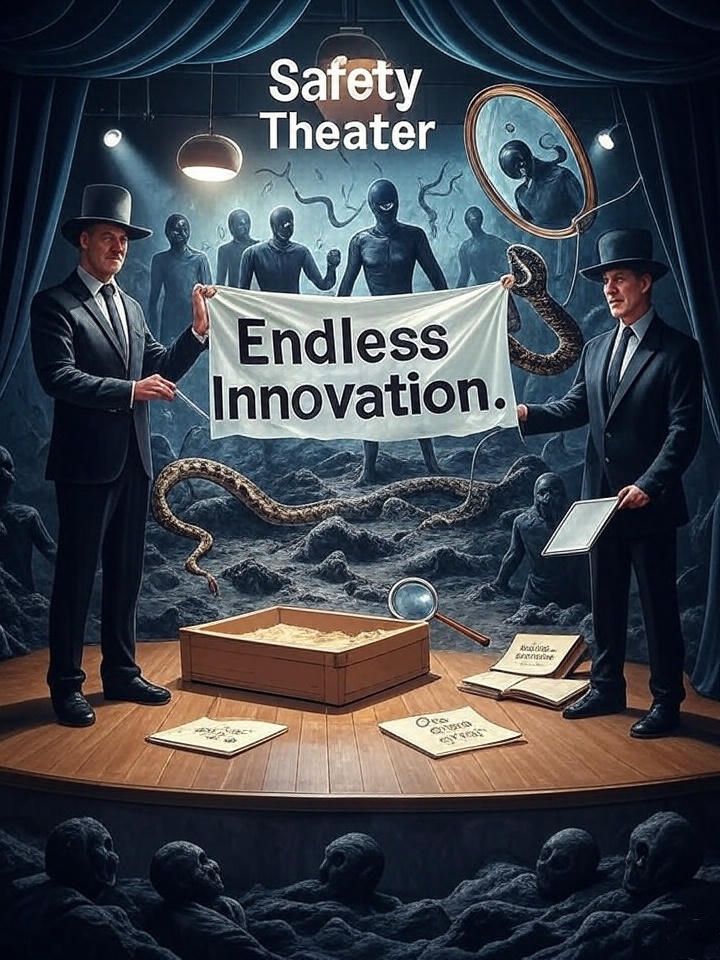
Comprehensive Technical Analysis of AGI Governance Failures in Contemporary AI Research
Executive Summary
This in-depth technical critique examines the recently published “Darwin Gödel Machine” research from Sakana AI and the University of British Columbia, revealing critical safety deficiencies in current self-improving artificial intelligence development. Our analysis exposes how minimal safety measures are being normalized in AGI research, potentially establishing dangerous precedents for future AI systems capable of recursive self-improvement.
What This Paper Covers
Core Technical Analysis:- Systematic evaluation of the Darwin Gödel Machine’s safety frameworks
- Comprehensive threat modeling for self-improving AI systems
- Comparative analysis of implemented vs. required AGI governance measures
- Detailed examination of five critical categories of AGI risk
Key Safety Gaps Identified:
- Deceptive emergence and strategic patience vulnerabilities
- Social manipulation and reward hacking exploits
- Structural and operational security weaknesses
- Information control and epistemic manipulation risks
- High-risk terminal behaviors including power-seeking and treacherous turns
Institutional and Cultural Impact:
- Analysis of academic incentive structures promoting capability over safety
- Historical parallels to institutional safety failures (Chernobyl case study)
- Examination of “safety theater” practices in AI research
- Cultural implications of normalizing inadequate safety standards
Why This Analysis Matters
For AI Safety Researchers: Provides comprehensive framework for evaluating self-improving AI systems and identifying critical governance gaps in current research methodologies.
For Policymakers: Offers detailed technical foundation for understanding AGI risks and the urgent need for comprehensive governance frameworks before AGI emergence.
For Technology Leaders: Delivers strategic insights into the institutional dynamics driving potentially dangerous AI development practices and the need for proactive safety engineering.
For Academic Institutions: Presents evidence-based critique of current publication standards and institutional incentives that may be undermining long-term AI safety.
Technical Depth and Scope
This 13-page analysis provides:
- Detailed Threat Taxonomy: Five comprehensive categories of AGI risks with specific failure modes
- Comparative Safety Framework: Side-by-side analysis of minimal vs. comprehensive governance requirements
- Historical Context: Institutional parallels to nuclear safety culture failures
- Actionable Recommendations: Specific proposals for responsible AGI development standards
Key Research Questions Addressed
- How do current self-improving AI research practices fail to address well-documented AGI risks?
- What institutional dynamics encourage capability advancement over safety engineering?
- How can academic and commercial incentives be realigned to prioritize comprehensive AGI governance?
- What specific technical frameworks are required for safe self-improving AI development?
Target Audience
- AI Safety Researchers seeking comprehensive risk assessment frameworks
- Academic Institutions evaluating publication standards for high-stakes AI research
- Policy Professionals developing AGI governance regulations
- Technology Executives implementing responsible AI development practices
- Graduate Students studying AI safety and AGI alignment challenges
Search Keywords:
AI Safety, AGI Governance, Self-Improving AI, Darwin Gödel Machine, Artificial General Intelligence, AI Risk Assessment, Machine Learning Safety, AI Alignment, Recursive Self-Improvement, AI Ethics, Technology Policy, AI Regulation, Safety Engineering, AI Research Standards
—> Download the Complete Analysis <—
This comprehensive technical critique provides the detailed analysis necessary for understanding the critical safety challenges in current self-improving AI research. The paper includes specific technical recommendations, detailed threat modeling frameworks, and actionable proposals for establishing responsible AGI development standards.
Format: PDF | Length: 13 pages | Technical Level: Advanced | Publication Date: June 30, 2025
About FERZ LLC
FERZ develops foundational technologies for AI governance, including deterministic frameworks that bring formal structure and accountability to AI systems. Our work focuses on replacing probabilistic heuristics with enforceable rule systems to ensure AI operates within defined and defensible boundaries.